Nous graus per a noves necessitats socials
5. from campus
New degrees for new social needs
Internationalization, transversality and interdisciplinarity are the main objectives of the new degree programs launched by the UPF in the last five years.

Inter-university, multidisciplinary, internationally oriented, responsive to social needs and even revolutionary are just some of the defining traits of the new bachelor's programmes UPF has designed in recent years.
Risky but successful undertakings intended to position the institution and its academic offer at the forefront of teaching innovation and adapt it to the new times and new students seeking to enrol at the University.
According to Cristina Gelpí, Vice-Rector for Teaching at UPF, ‘When developing new degree programmes, three key aspects must be taken into account: the link between the new programmes and each centre’s strategic projects, the available human and material resources, and the fulfilment of quality requirements.’ ‘The current economic situation makes the centres’ efforts to propose new programmes and adjust them to resource constraints even more remarkable’, she added.
Risky but successful undertakings intended to position the institution and its academic offer at the forefront of teaching innovation and adapt it to the new times and new students seeking to enrol at the University.
UPF’s portfolio of degree programmes reflects a combination of system bachelor’s degree programmes with more innovative, open and flexible ones: a balanced offer spread across the scientific fields that UPF is built around and one that targets local students in a way that is compatible with the offer of a multilingual and multicultural environment.
According to Gelpí, ‘The newest degrees, i.e. the ones that did not exist five years ago, pursue three main goals: internationalization, cross-disciplinarity and interdisciplinarity.’ Specific examples of programmes that reflect these premises include the new bachelor’s degrees in Philosophy, Politics and Economics, in Global Studies, and in Mathematical Engineering in Data Science.

UPF’s Open Bachelor’s Degree programme deserves special mention. It is ‘the most innovative proposal to date, designed to enable maximum flexibility’, the vice-rector said. This programme breaks with the university system’s traditional model of controlled access to each degree programme and allows students interested in multiple disciplines to acquire transdisciplinary training before choosing the programme they ultimately wish to earn their degree in.
The implementation of a new degree programme is always backed by a needs assessment to determine its suitability. UPF thus ensures that all proposals offer the necessary guarantees of success from the start. ‘New degree programmes have to reflect specific, delimited social needs. This principle governs all bachelor’s degree programmes at UPF’, Gelpí explained.
"New degree programmes have to reflect specific, delimited social needs. This principle governs all bachelor’s degree programmes at UPF"
And the numbers back UPF up. The three main indicators to measure the acceptance of the new programmes are the number of applications received, the admission mark, and the average mark of the incoming students. The figures for the new programmes leave no room for doubt. The University’s new proposals have been very well received. ‘The available data show a very good ratio of supply to demand. The average mark of the incoming students for these programmes is also especially good’, Gelpí explained.

New bachelor’s degree programmes, new teaching
‘When people ask us about our strengths and why UPF ranks so highly, we usually attribute the strong performance to a combination of three factors we believe are essential: a firm commitment to teaching innovation, top-quality students, and a very good policy for recruiting and retaining teaching and researcher talent’, the vice-rector explained.
With regard to teaching innovation, UPF is concerned not only with new learning methodologies, but also new degree programmes tailored to meet new needs, new training paths of variable duration, and the international opening up of its undergraduate offer. This latter area is one that the University has traditionally emphasized at the graduate level, but where it still has a very long way to go at the undergraduate level.
“We are training professionals in a highly changeable environment and that we need to prepare our students for liquid professions that are almost impossible to imagine”
This commitment is the result of ‘the awareness that we are training professionals in a highly changeable environment and that we need to prepare our students for liquid professions that are almost impossible to imagine’, Gelpí explained. To that end, ‘the best thing that we can offer them is an education model based on the acquisition of skills they can apply to a wide variety of constantly changing professional situations’.
The UPF model prioritizes skills related to research, social awareness, ethics, democracy, sustainable development, and digital literacy and communication, as well as multicultural and multilingual skills, all of which are explicitly reflected in the University's degree programme map.

Present and future challenges
Just because a degree programme is not new does not mean that it is not periodically revamped. According to Gelpí, ‘All UPF bachelor’s degree programmes are updated and improved as a result of the opportunities identified during the monitoring and accreditation process, as well as the need to adapt them to the new realities that have emerged since they were first rolled out.
Regardless of whether or not a list of new bachelor’s degree programmes is designed in the coming academic years, the current aim is to address two fundamental challenges in relation to the existing programmes.
‘First, we need to determine whether we want to grow as a university and in what fields and, second, we need to reflect on the bachelor’s degree programmes we already offer and their thematic and formal suitability’, the vice-rector’s office explained.
The future will require reconsidering the current boundaries between knowledge areas
The future will require reconsidering the current boundaries between knowledge areas. That entails conceiving of more cross-disciplinary and interdisciplinary bachelor’s degree programmes, something that UPF has already been working on for years. ‘We are performing a programme audit to assess the areas in which there is a need for growth or reconfiguration’, Gelpí said. ‘We are also in the process of evaluating our education model, which, in the coming months, will provide us with an updated vision of UPF’s DNA. As a result, in the coming years, rather than new programmes, we expect to be talking about dramatically redesigned ones.’
UPF’s new bachelor’s degree programmes
The last five academic years have seen the roll-out of new bachelor’s degree programmes in the areas of humanities, political and social sciences, engineering and economics. The University has also promoted the UPF Open Bachelor’s Degree programme, which is spearheading the paradigm shift in university education.
Bachelor’s degree in Philosophy, Politics and Economics
Academic year launched: 2013-2014

Universidad Carlos III de Madrid and
Universidad Autònoma de Madrid
2017-2018
- Cat
- Cast
- Angl

Jordi Guiu, coordinator of the bachelor’s degree in Philosophy, Politics and Economics
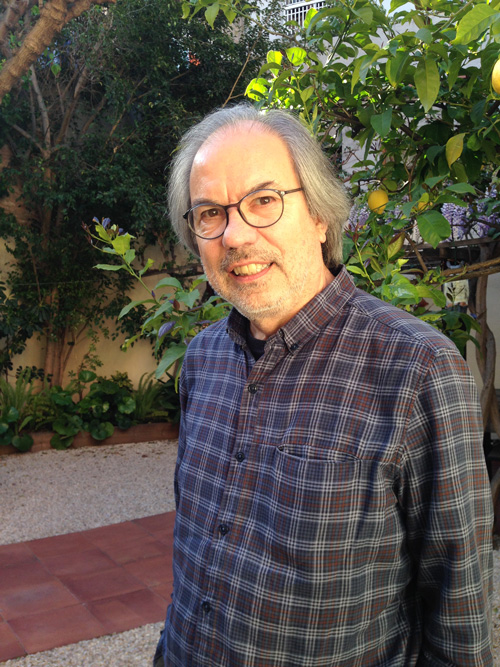
‘This inter-university bachelor’s degree programme is jointly offered by three members of the Alliance of 4 Universities (A4U): the Autonomous University of Madrid (UAM), Carlos III University of Madrid (UC3M), and UPF in Barcelona, which is the coordinator.’
‘Although an innovative proposal in the Spanish university system, it has a long-standing tradition in the English-speaking academic arena. It is currently taught at nearly 50 leading universities, including Duke, Bern, Hamburg, Manchester, Oxford, University of Pennsylvania and Yale, amongst others.’
‘It is based on interdisciplinary thought understood not as the transmission of a series of isolated or independent content from various disciplines, but rather as encouraging an environment of genuine discussion, dialogue and integration of necessarily complementary theoretical and empirical approaches for students and teaching staff.’
‘Central issues such as the crisis of representative democracy, growing social and economic equality, the creation and circulation of information and knowledge, the evolution of international financial markets, the competitiveness of Western economies in the context of emerging economies, the legitimacy of government institutions, or the future of the welfare state cannot be confined to any one discipline.’
‘It is aimed at students who are interested in and passionate about politics and the social problems of the contemporary world who take a critical and reflective approach towards these issues.’
‘A good command of English is important, and students have to be willing to move around and work at different universities: one academic year in Barcelona, another in Madrid, as well as a recommended study-abroad period.’
UPF Open Bachelor’s Degree
Academic year launched: 2015-2016



Social and Legal Sciences and
Engineering and Architecture
2017-2018
- Cat
- Cast
- Angl

Pilar Medina, academic coordinator of the UPF Open Bachelor’s Degree
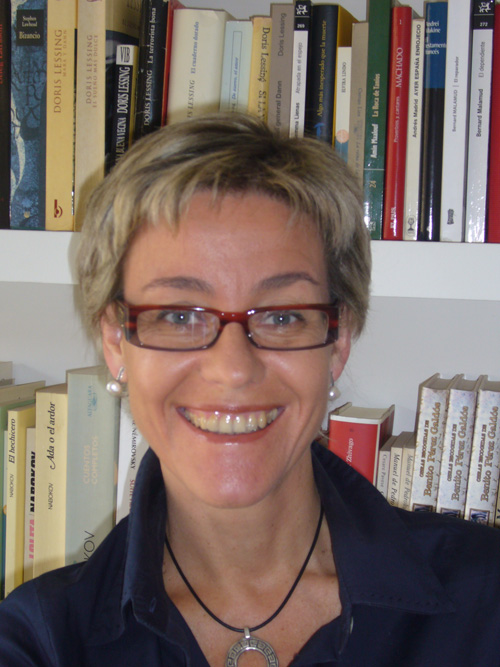
‘This programme is part of how UPF is seeking to respond to a changing world in which it is not enough to hold a university degree as it has been traditionally conceived of.’
‘The 21st century needs open-minded professionals with an interest in fields and disciplines other than what is strictly their own branch of expertise.’
‘It is a good choice for secondary school students who have achieved the necessary cut-off mark to enrol on various degree programmes, but have not yet decided which one they wish to pursue.’
‘The ideal candidates will be highly motivated students, able to adapt to different learning methodologies, as well as different class groups, who would like to “get a taste” of more than one bachelor’s degree programme.’
‘At the start of the academic year, the students design a tailored curriculum with subjects from the various degree programmes in which they are interested. Each term, they review it with their tutor and, upon completing the first academic year, they join one of their target degree programmes.’
‘They also have the option of earning a UPF-specific degree (“minor”) recognizing the complementary training received in a knowledge area other than the core area of their final degree.’
Bachelor’s degree in Global Studies
Academic year launched: 2016-2017

Ciutadella campus
Social and Legal Sciences
2017-2018
- Angl

Toni Luna, coordinator of the bachelor’s degree programme in Global Studies
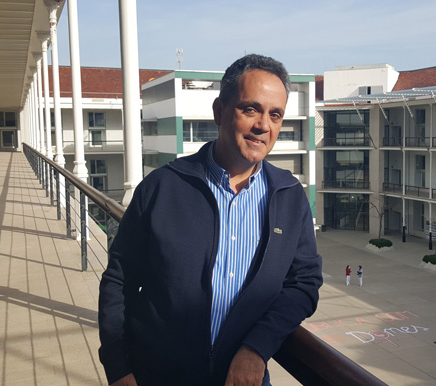
‘This is an interdisciplinary degree programme that brings together teaching staff from five different UPF faculties: Communication, Law, Political and Social Sciences, Humanities, and Economic and Business Sciences.’
‘One of the reasons for its creation is the internationalization of the University’s undergraduate programmes. The aim is for half the students to be local (meaning students from anywhere in the European Union) and the other half to be international.’
‘It is targeted at students interested in international relations, globalization, and the economic, political, social and cultural relations of different regions of the world.’
‘Global studies prepare students to work at major global institutions. Graduates have a variety of career prospects, such as diplomacy or international relations. They may also go on to work at major international institutions, such as the United Nations, the European Union, UNESCO or the World Bank, or at private companies with large international operations or NGOs.’
‘It has been extremely well received by “local” students. However, the most surprising thing may be the number of applications received from outside the European Union. The first year, without engaging in much promotion and announcing the new programme only a couple of months before the start date, we had only 3 students. However, by the second year, that figure had climbed to 27, and we expect to have even more students next year.’
Bachelor’s degree in Mathematical Engineering in Data Science
Academic year launched: 2017-2018

Poblenou campus
Engineering and Architecture
2017-2018
- Cat
- Cast
- Angl

Xavier Binefa, coordinator of the bachelor’s degree programme in Mathematical Engineering in Data Science
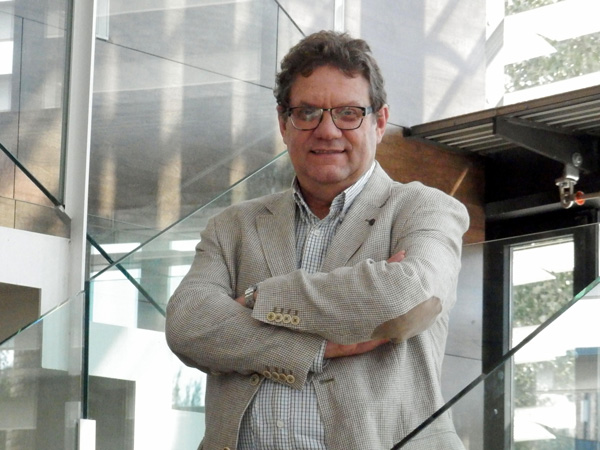
‘The bachelor’s degree programme seeks to produce the professionals that society needs, people who, as a result of advances in statistics learning and computing capabilities, can generate real applications at companies or public institutions.’
‘We are talking about a new professional able to turn data into useful information for decision-taking. In addition to mathematics, they need to have a solid command of several other disciplines, such as computer science, to be able to work with large quantities of distributed data accessible in real time or in remote repositories, or statistics, to build models and learn from data or extract the semantics from texts, as well as to have a broad vision of data including not only text or numbers, but also images, videos and audio.’
‘Today everyone agrees that data plays a very important role at new-economy companies. This role can be seen in job postings, where data scientists are some of the most heavily recruited and best-paid professionals on the market.’
‘The fact that the University’s Department of Information and Communication Technologies was awarded a Maria de Maeztu distinction in data science ideally positioned us to transfer the content we were being recognized for to a new bachelor’s degree programme.’
‘The response has been excellent. Furthermore, we are very pleased that women account for half the students. This is a remarkable change with regard to the other engineering programmes unrelated to biomedicine, where they account for less than 20 per cent. We hope to continue in this vein.’
Bachelor’s degree in Industrial Technologies and Economic Analysis
Academic year launched: 2018-2019

UPC Barcelona School of Industrial Engineering
Social and Legal Sciences
2017-2018
- Cat
- Cast
- Angl

Humbeto Llavador, coordinator of the bachelor’s degree programme in Industrial Technologies and Economic Analysis
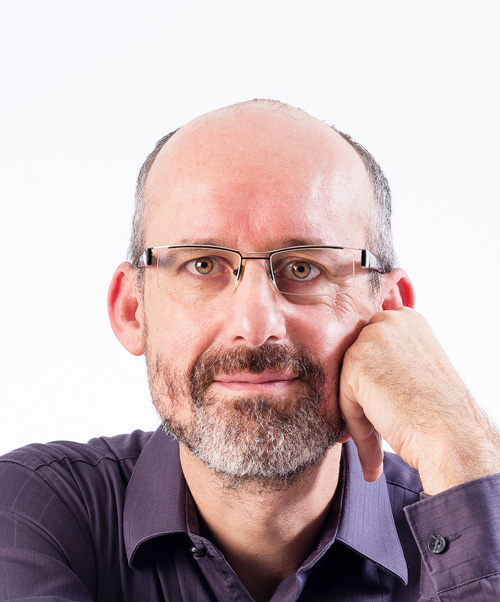
‘It is a disruptive initiative in many ways. It is a new, entirely public, interdisciplinary, inter-university bachelor’s degree programme able to equip participants with high-level training in a compact curriculum lasting only four years. It offers an excellent opportunity to carry out innovation projects through internships at Spanish and international companies, as well as excellent employability.’
‘Its aim is to train the next generation of industry leaders, able to combine a solid grasp of innovation and technology with proficiency in the tools of economic analysis in a constantly evolving, interconnected world.’
‘The programme, which is taught entirely in English, is offered jointly with the Polytechnic University of Catalonia (UPC). Subjects are taken on the campuses of both universities over the four years the programme lasts. Thus, in addition to the multidisciplinarity of the bachelor’s degree subjects themselves, students share space and time with other Industrial Engineering and Economics students.
‘It is designed for students with an interest in engineering and a particular interest in rigorous economic training. This will allow them to choose, in future, to pursue advanced training in either of these two fields.’
